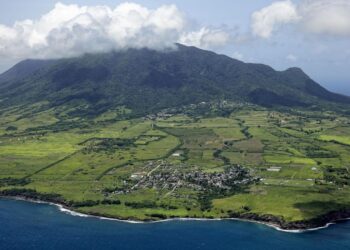Environment
One of the smallest countries in Latin America, Uruguay is located on the eastern coast of the Southern Cone. It borders Argentina to the west and Brazil to the east/ north-east. Unlike many other Latin American countries, Uruguay has no mountains, deserts or rainforests, which means that most of the country is easily accessible. Over 80 per cent of Uruguayans live in cities.
History
It is commonly assumed that little ethnic mixing took place between Uruguay’s indigenous population and early Spanish colonists. Indigenous peoples that survived Spanish colonial rule were deliberately exterminated in the nineteenth century. This coincided with a relatively large influx of European immigrants and government efforts to promote Uruguay as the ‘Switzerland of South America’.
In Uruguay, as in the other southern cone countries, the 1970s were marked by continual human rights violations on the part of the armed forces and military government. Investigation of these violations became a political issue after re-democratisation in 1985, when the government proposed an amnesty for those involved; a referendum held in 1989 upheld the amnesty by a narrow majority. In 2001, the government finally established a Peace Commission to clarify the fate of those who were disappeared between 1973 and 1985.
Several Afro-Uruguayan organizations and cultural groups have emerged since the 1980s. Uruguayans have also begun to show an increasing interest their country’s indigenous history.
Governance
Uruguay has suffered a major economic crisis in recent years, which has meant deteriorating living standards for most of the population. In 2005 Tabare Vasquez became Uruguay’s first left-wing head of state.
Historically, there has been little legal recourse against racially discriminatory behaviour in Uruguay, except for Article 42 of the penal code which penalises open aggression due to differences in colour, race or religion. There is no legal recourse against subtle discriminatory behaviour, such as denying access to employment or services in public places or institutions.
The country has no tradition of official anti-Semitism although there have been isolated incidents of Jews being attacked or marked with swastikas. Montevideo now has a Jewish museum and a Holocaust memorial. As a result of the economic crisis of the early 2000s a large proportion of the country’s Jewish community has emigrated abroad.
The Asociación Indigenista de Uruguay was created as the result of the arrival of Guaraní Mbyá families from Argentina and Brazil in the 1980s. In 1992 one of the first regional meetings of indigenous peoples (including Guarani, Mapuche, Aymara and Quechua representatives) was held under the auspices of Uruguay’s Asociación Indigenista. However, the Guaraní Mbyá still desperately need support in a country, where the elites believe in reinforcing a homogeneous (European) identity.
Education reform has been reluctant to consider demands for the inclusion of Afro-Uruguayans’ history in the national curriculum. Lack of access to basic resources (housing, water, sewage) continues to be a problem for many Afro-Uruguayans.
Source link : https://minorityrights.org/country/uruguay/
Author :
Publish date : 2017-08-08 18:38:33
Copyright for syndicated content belongs to the linked Source.










